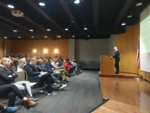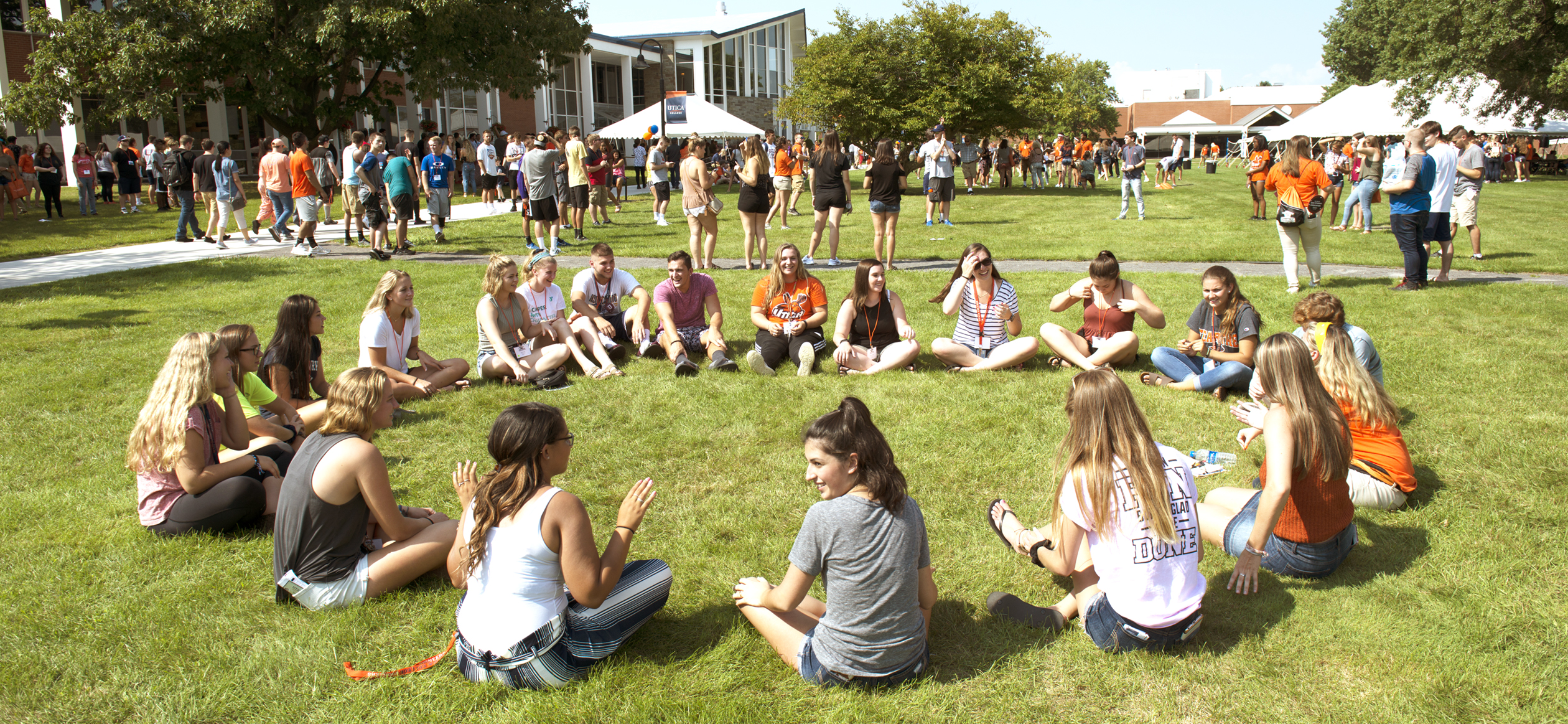April 5, 2018
Professor Michael Kocsis
"What should a U.S. President do about Humanitarian Military Intervention?"


At 6:00 pm on Thursday, April 5, 2018, Professor Michael Kocsis gave a public lecture titled "What should a U.S. President do about Humanitarian Military Intervention?". The talk was hosted hosted in Carbone Auditorium on Utica College's campus at 1600 Burrstone Rd., Utica, NY. Professor Kocsis investigated the considerations that should guide U.S. Presidents in circumstances where the rights of foreign citizens are threatened by their own government. Such conflicts, which normally fall under the heading of what experts call “humanitarian military interventions”, are controversial and unpopular in American political discourse. But it is undeniable that humanitarian intervention has become a featured constituent of U.S. foreign policy as far back as Presidents Kennedy and Eisenhower. And there is no indication that intervention will fall off the agenda of U.S. Presidents in the decades ahead. He examines the principles he believes should shape judgments by U.S. Presidents when humanitarian intervention is called for. Before doing so he acknowledged that the question is difficult to answer decisively; not all Presidents locate universal human rights at the center of their foreign policy doctrines, and even if when they do give priority of place to protecting human rights, he acknowledges that a President’s role can be sharply constrained by the common challenges and fluctuations of national politics.
Professor Kocsis believes nevertheless that it is feasible to work out basically distinct principles. For starters, the individual who sits in the Oval Office, despite the outlook they may hold personally, is required to set aside certain points of view held by American citizens and to endorse others. The U.S. President is compelled by the political position they hold to set aside at least the comprehensive associations of the ideology of pacifism. Similarly, they ought necessarily to reject the militarism and armed aggression as policy options. He argues in this presentation that the stance U.S. Presidents should endorse is that it is justified at least some instances to send armed forces into a foreign country to save that country’s civilians from violent repression or from slaughter. He acknowledged that the line between a justified intervention and a tyrannical crusade is inherently difficult to draw. Still, by attempting to draw it we make modest progress toward developing defensible principles of judgment rooted in universal values.
What should a U.S. President do about humanitarian military intervention? Professor Kocsis hoped to convince the audience of three simple points: (1) The American President has been at the forefront of “just intervention” since at least 1945. (2) History has proven that it is exceptionally difficult to institute a free and democratic society in countries where no such tradition exists already. (3) The role played by “nations” in cases of just intervention is both puzzling and powerful. It is difficult to lay down decisive principles which should be followed strictly by a U.S. President when cases like these arise. He will argue that his three assertions are the minimal benchmarks.
Media:

Public lectures delivered at The Applied Ethics Institute at Utica College can be accessed at:

